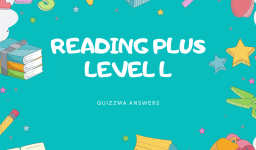Supporters of using the atomic bomb at the end of World War II believed that
A. Japan might win the war if the bomb was not used.
B. Americans were tired of war and the US should end it quickly.
C. Russia was developing a bomb and the US needed to use it first.
D.Japan was developing a bomb and the US needed to use it first.
Answer: B. Americans were tired of war and the US should end it quickly.
Explanation
The atomic bomb was initially developed by the Americans. The Americans decided to use the atomic bomb to end World War II quickly and thus the correct answer is B.
At the Potsdam Conference, the Allied Nations gathered to discuss harsh measures against Germany. They likewise discussed what to do with Japan, since they continued to battle the Allied in the Pacific Ocean. The three leaders decided that Japan should submit unconditionally to end this conflict as soon as possible.
Truman was incensed by Japan’s refusal to accept the Potsdam Conference’s conditions. Truman considered various alternatives, including a land invasion. A D-Day-style invasion, on the other hand, would almost certainly have resulted in 500,000 fatalities (or more). This might take months or even a year to complete. Truman decided to use atom bombs on both Hiroshima and Nagasaki in order to save American lives and bring the war to an end sooner.
cost too many American lives.
not be successful.
be opposed by the American people.
require the navy to build too many ships.
They thought the radioactive fallout was too dangerous.
They thought it would make Japan fight even harder.
They did not want other nations to know about the bomb.
They did not want to waste one of the remaining bombs.
Hawaii was a tourist destination, not an important military post.
Hawaii was where a large portion of the Pacific fleet was sheltered.
Hawaii was where US naval power was the weakest.
Hawaii was where US land troops awaited battle.
It gave the Allies the advantage to win the war.
It gave the Axis the advantage to win the war.
It kept US factories busy throughout the world.
It kept only US soldiers well equipped.
The US and Japan became military enemies.
The US and Japan became allies and trading partners.
The US and Japan became allies with few economic ties.
The US and Japan became members of the Allied nations.
because of the spread of socialism.
because Germany needed supplies.
because fascism was gaining ground in Europe.
because of WWI.
Its Royal Air Force won the Battle of Britain.
Its Royal Navy lost the Battle of the Atlantic.
Its Royal Air Force lost the Battle of the Atlantic.
Its land troops outmaneuvered Germany’s
the Nanjing Massacre
Roosevelt’s Four Freedoms speech
Japan’s oil exports
the Lend-Lease Act
After the US dropped atomic bombs on two major cities in Japan, Japan surrendered.
After the US dropped atomic bombs on two major cities in Germany, Germany surrendered.
After the US dropped atomic bombs on major cities in Germany and Japan, both surrendered.
After Japan dropped an atomic bomb on Pearl Harbor, the US entered World War II.
Hitler had the confidence to launch further invasions of European countries.
Other European countries peacefully coexisted with Germany.
World War II continued without US involvement.
Hitler found the last of the Lebensraum that he desired.
suggesting the destruction would not be any greater than at Pearl Harbor.
noting the bomb would mainly destroy buildings rather than kill people.
suggesting the bomb would only be used on important military targets.
noting that firebombing had already caused extensive damage in Japan.
fascism marked by individual civil liberties
democracy marked by a single, elected ruler
communism marked by one-party rule
totalitarianism marked by a belief in Aryan superiority
were good examples of the “island-hopping” strategy.
significantly reduced Japan’s naval strength.
were significant victories for the Allies.
were fought by warplanes from aircraft carriers.
responded with immediate armed resistance.
united to protect Czechoslovakia.
offered no resistance.
convened the Munich Conference.
factory workers.
the government.
the Allies.
oil well owners.



